Greatest NBA Teams
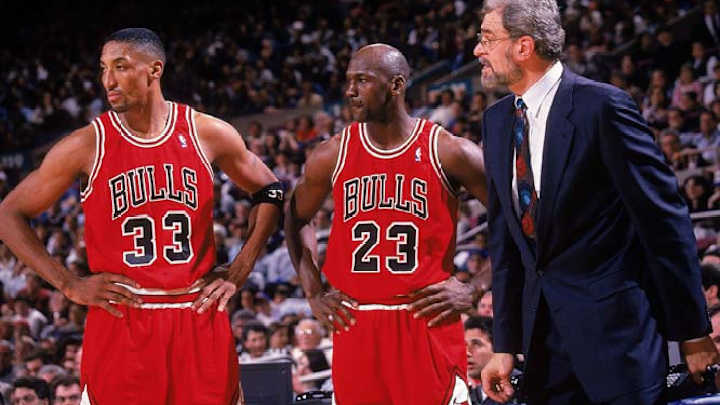
Greatest NBA Teams
1995-96 Bulls

Michael Jordan and Scottie Pippen powered the Phil Jackson-coached Bulls to a 72-10 season, the only team in NBA history to reach 70 victories. Chicago opened 41-3, led the NBA in offensive and defensive efficiency and outscored its opponents by an average of 12.2 points. The Bulls didn't let up in the playoffs, either, winning 14 of their first 15 and 15 of 18 overall (Seattle won back-to-back games against Chicago in the Finals).
1985-86 Celtics
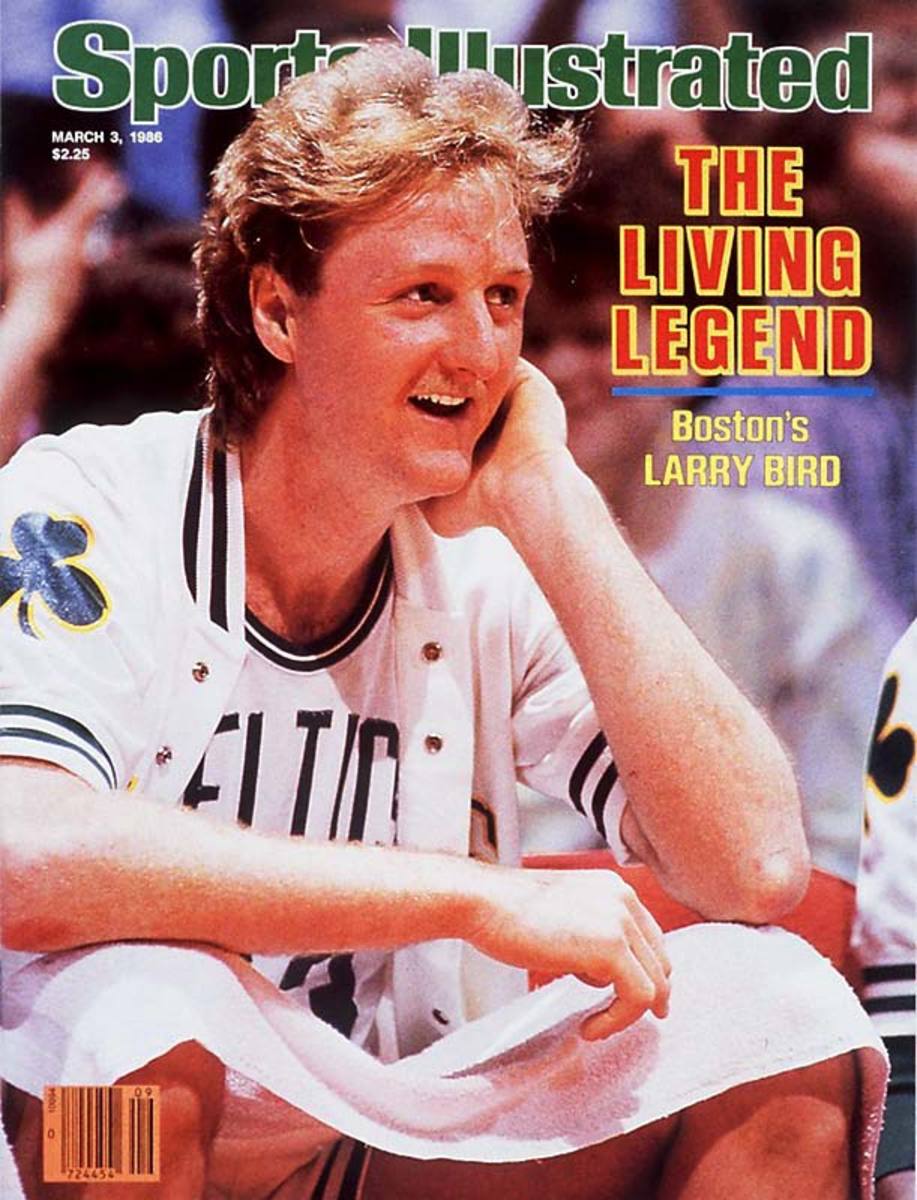
One year after losing to the Lakers in the NBA Finals, the Celtics lost just one game at home all season and piled up 67 regular-season wins on their way to the NBA title. Larry Bird won his third consecutive MVP award as the centerpiece of a star-studded team that included fellow Hall of Famers Kevin McHale, Robert Parish, Bill Walton and Dennis Johnson.
1986-87 Lakers
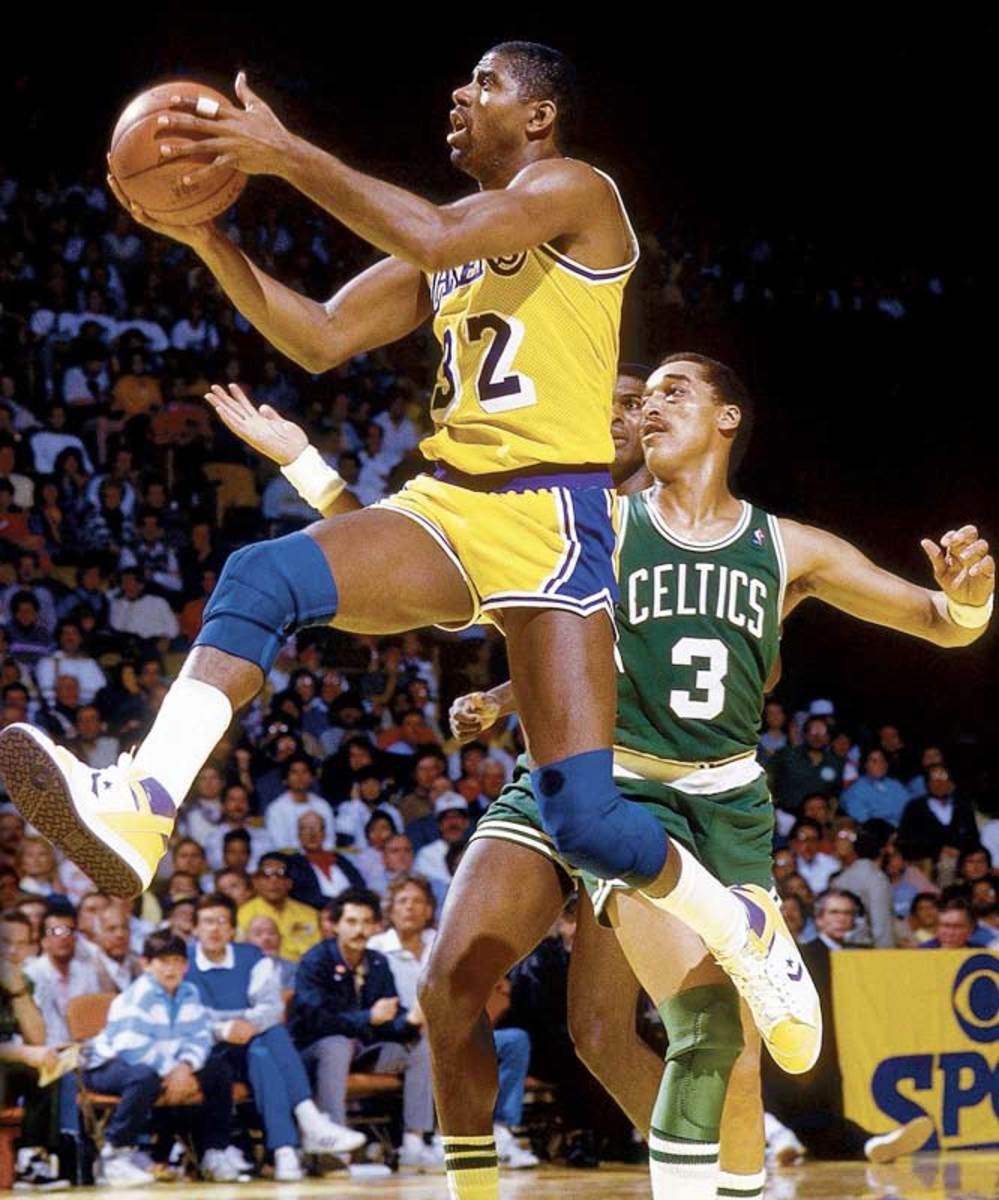
Magic Johnson averaged a career-high 23.9 points and led the league with 12.2 assists as the "Showtime" Lakers won 65 games and reclaimed the NBA title from the Celtics. The Lakers, who had the league's most efficent offense, were loaded with Kareem Abdul-Jabbar and James Worthy in the frontcourt, Byron Scott joining Magic in the backcourt and the likes of Michael Cooper, A.C. Green and Mychal Thompson rounding out Pat Riley's rotation.
1982-83 76ers
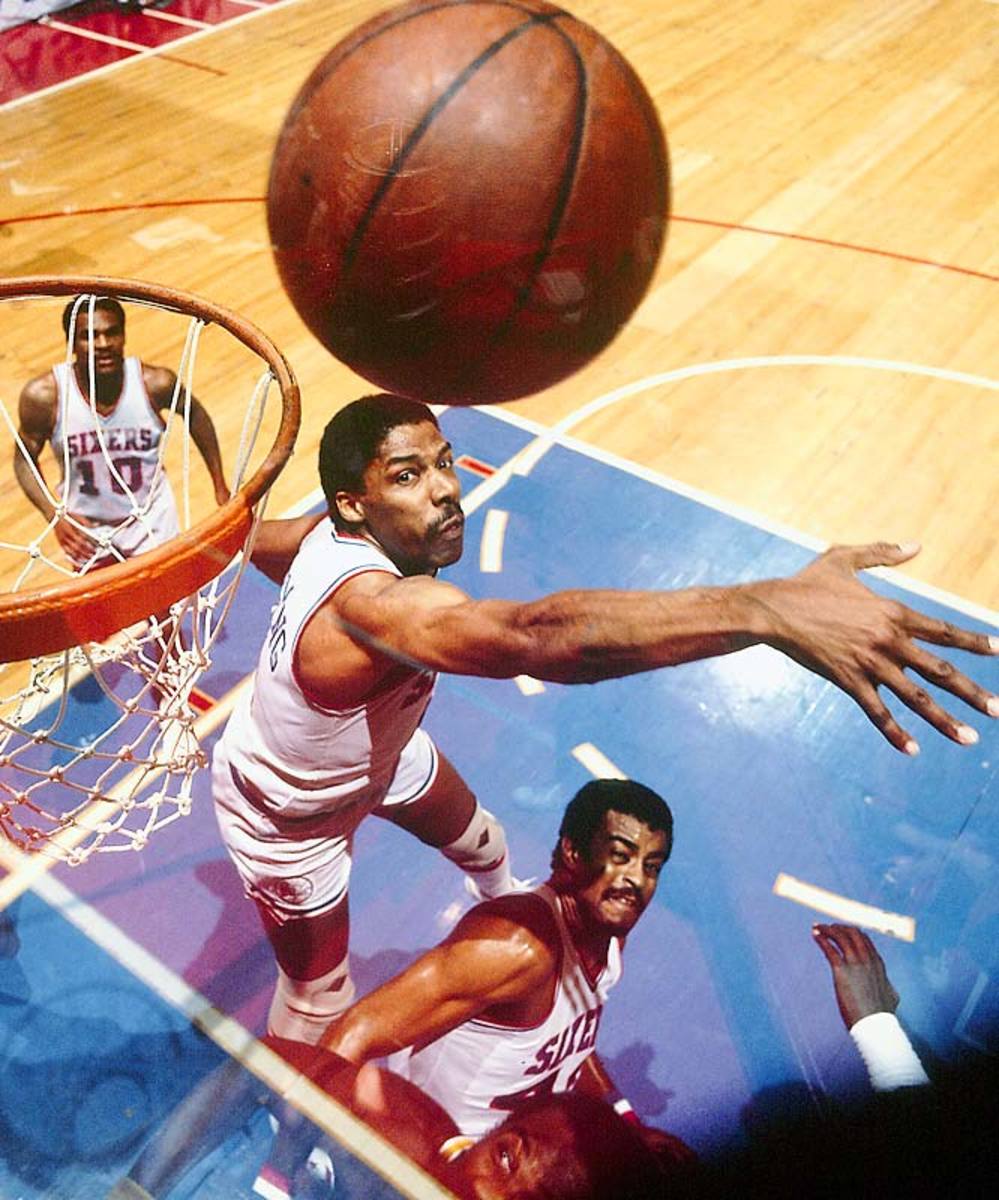
Moses Malone joined Philadelphia as a free agent to help Julius Erving and the 76ers to 65 wins and a 12-1 record in the playoffs, giving the franchise its first title in 16 years.
1971-72 Lakers
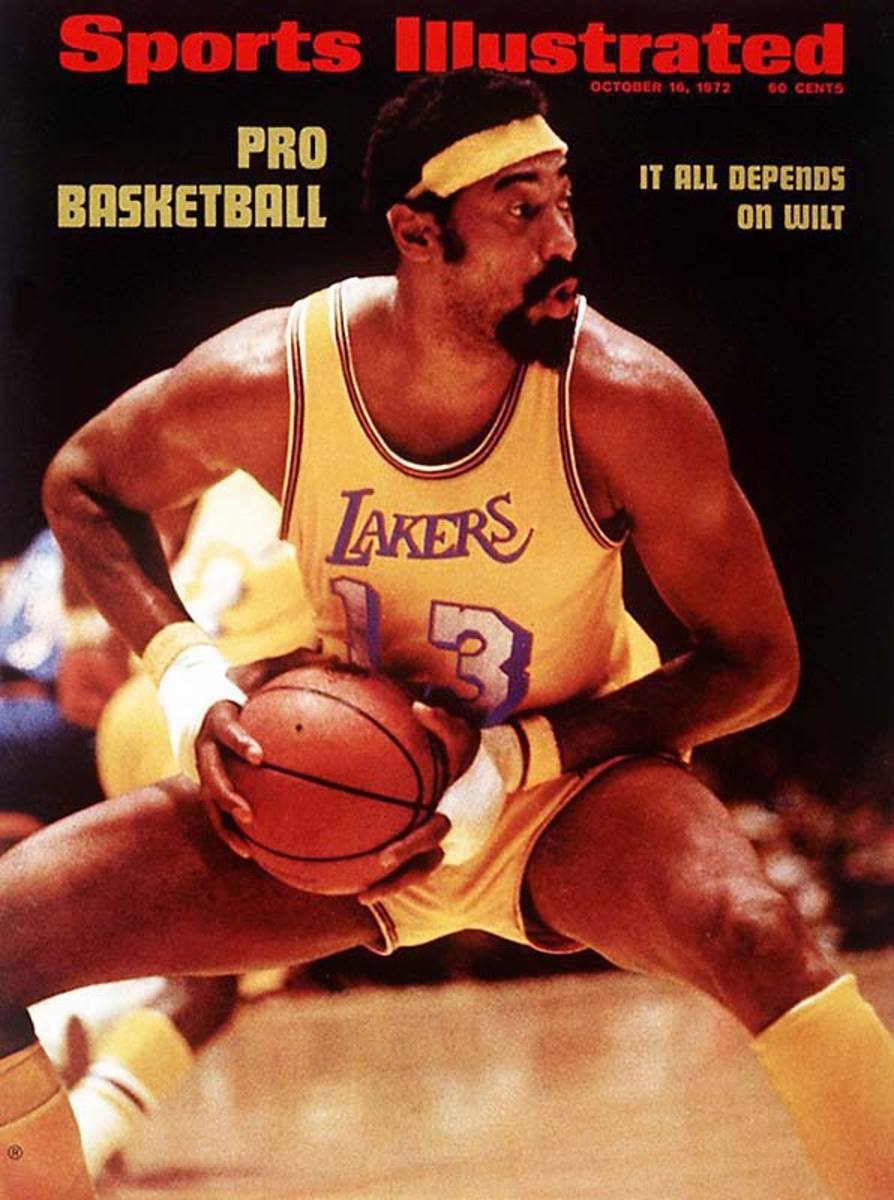
The Lakers set NBA records with 33 consecutive wins and 16 consecutive victories on the road in winning 69 games, the second highest total of all time. Wilt Chamberlain, Jerry West and Gail Goodrich were more than enough to overcome the departure of Elgin Baylor, who retired nine games into the season because of injury. The championship would be the Lakers' first in Los Angeles.
1966-67 76ers
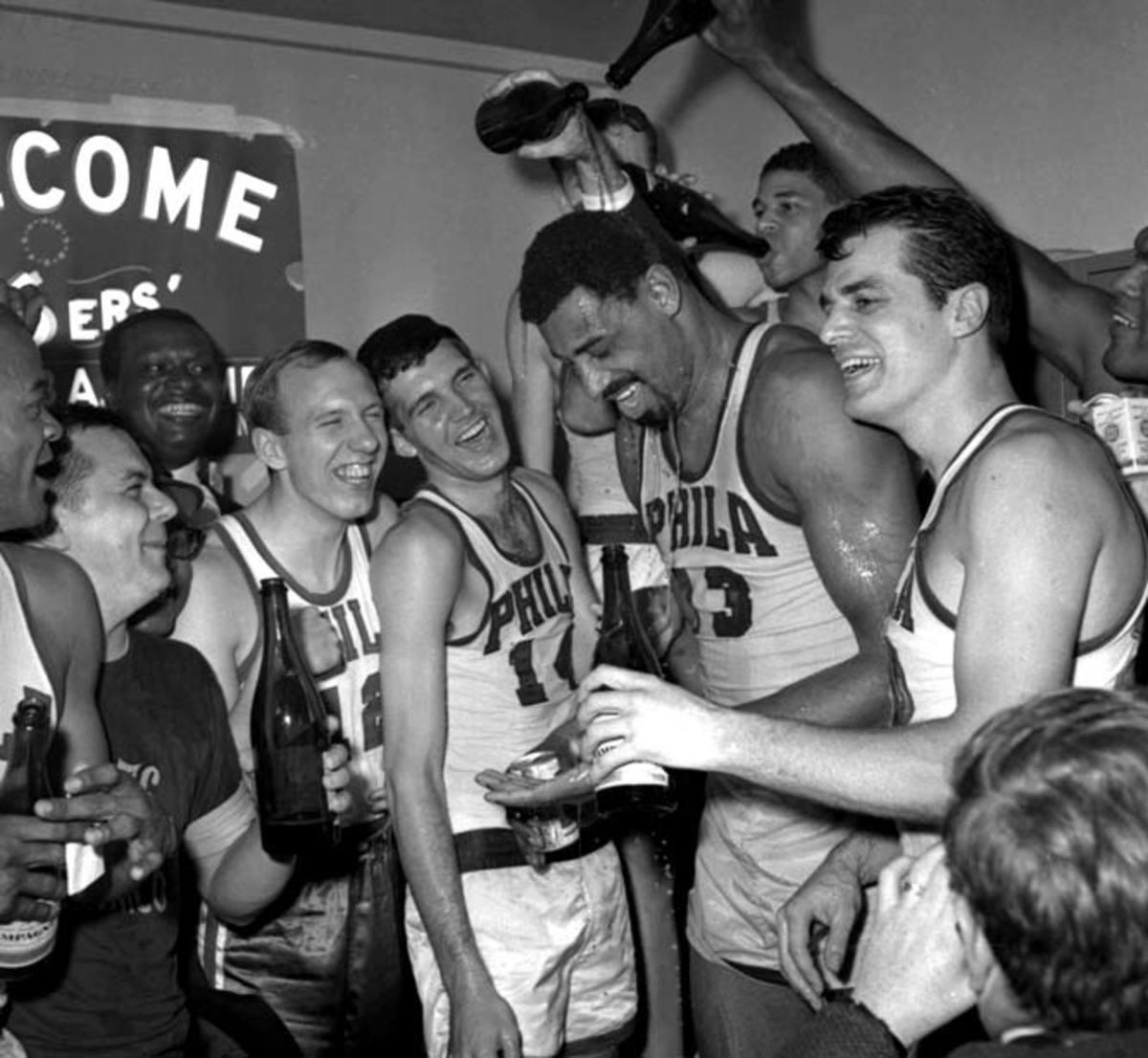
With Wilt Chamberlain, Hal Greer, Chet Walker and Billy Cunningham leading the way, the Sixers set what was then an NBA record with 68 regular-season wins and broke Boston's string of eight consecutive championships.
1964-65 Celtics
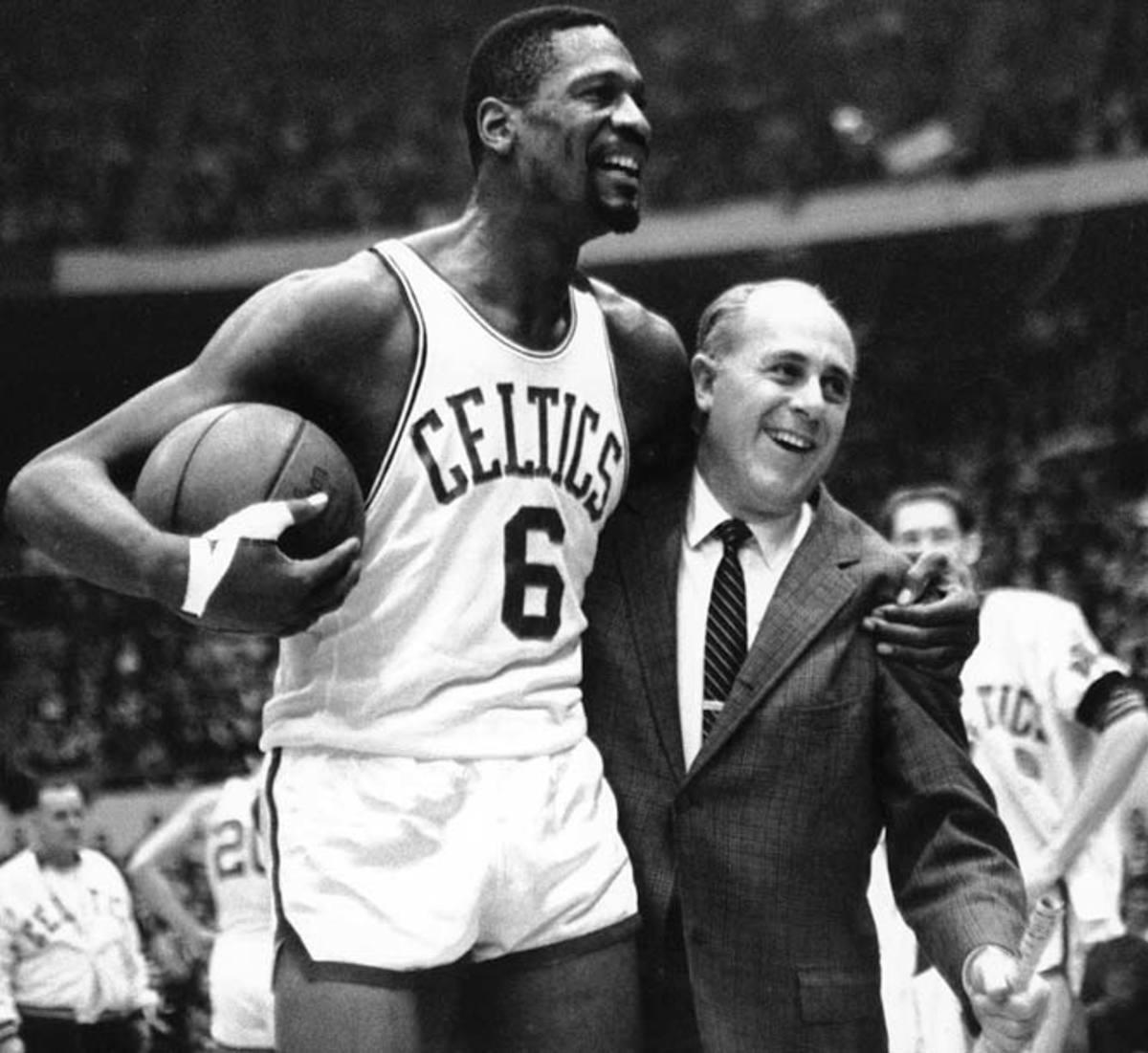
Boston rode John Havlicek's famous steal to get to the NBA Finals and then beat the Lakers 4-1 for the title. Havlicek and Bill Russell led Boston to a 62-18 record, 13 games better than anybody else in the nine-team NBA.
1996-97 Bulls
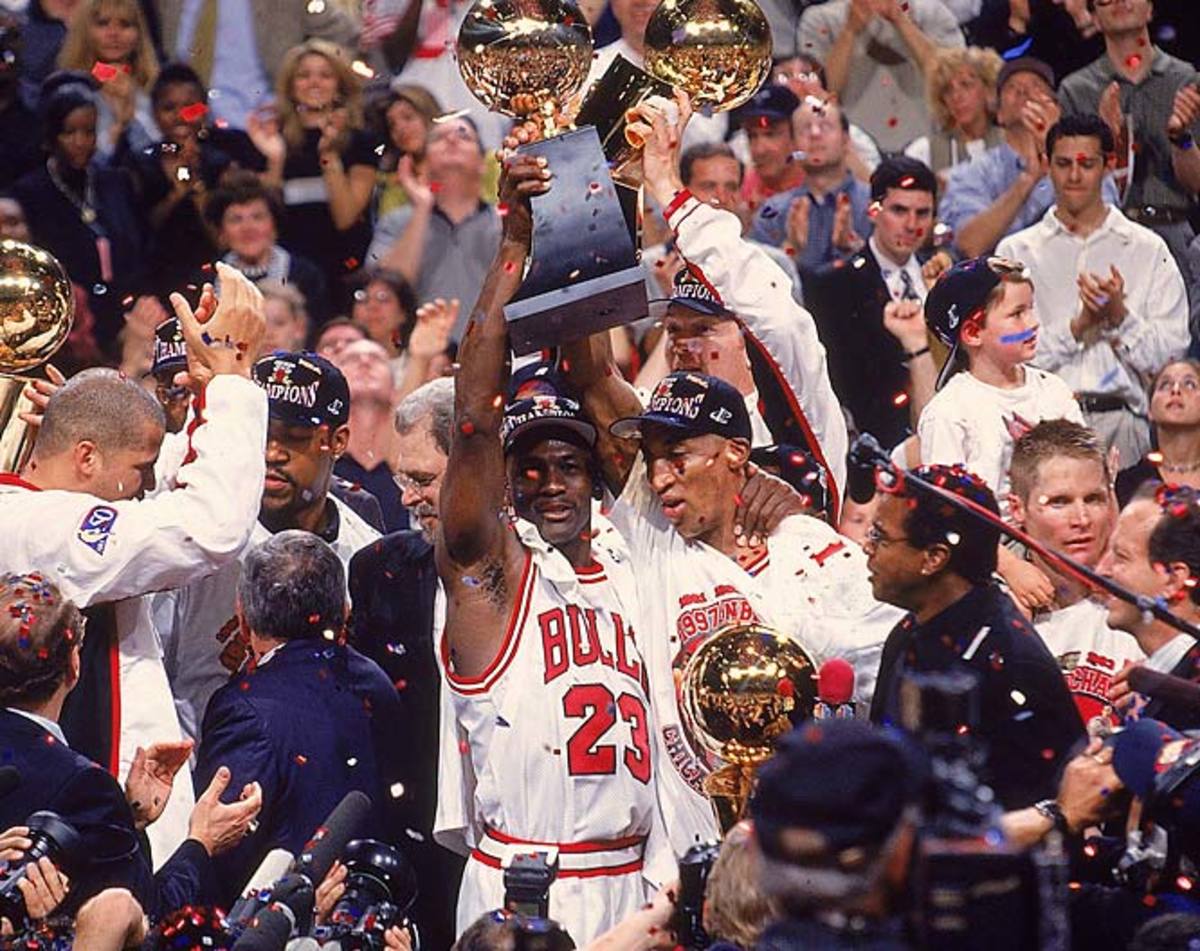
Though they couldn't match their record-setting 72 wins of a year earlier, the Bulls still won 69 en route to their second of three straight championships.
1970-71 Milwaukee Bucks
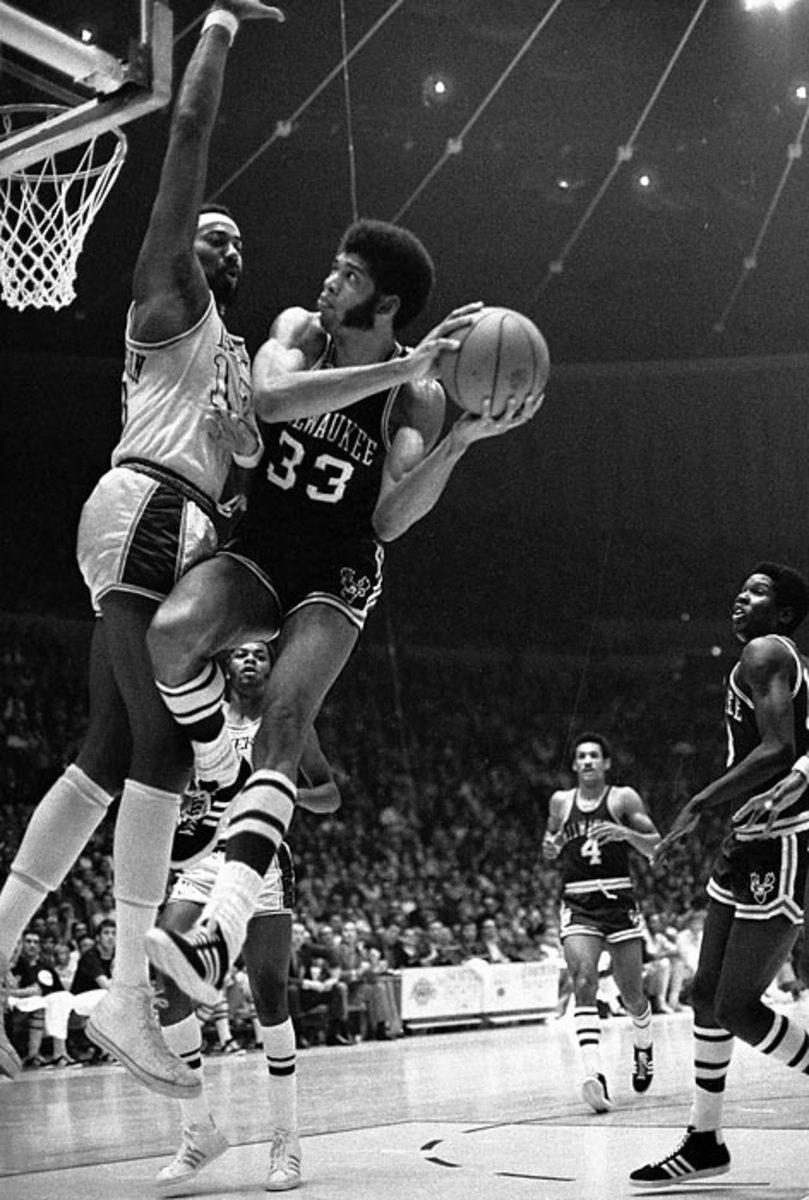
Led by MVP Kareem Abdul-Jabbar (31.7 ppg, 16 rpg) and Oscar Robertson, the Bucks ripped off a 20-game winning streak during the regular season, finished 66-16 and rolled through the playoffs with a 12-2 record. Milwaukee outscored its opponents by 12.2 points per game, the second-best differential in NBA history, and was No. 1 in both shooting percentage (50.9) and field-goal defense (42.4).
1988-89 Detroit Pistons
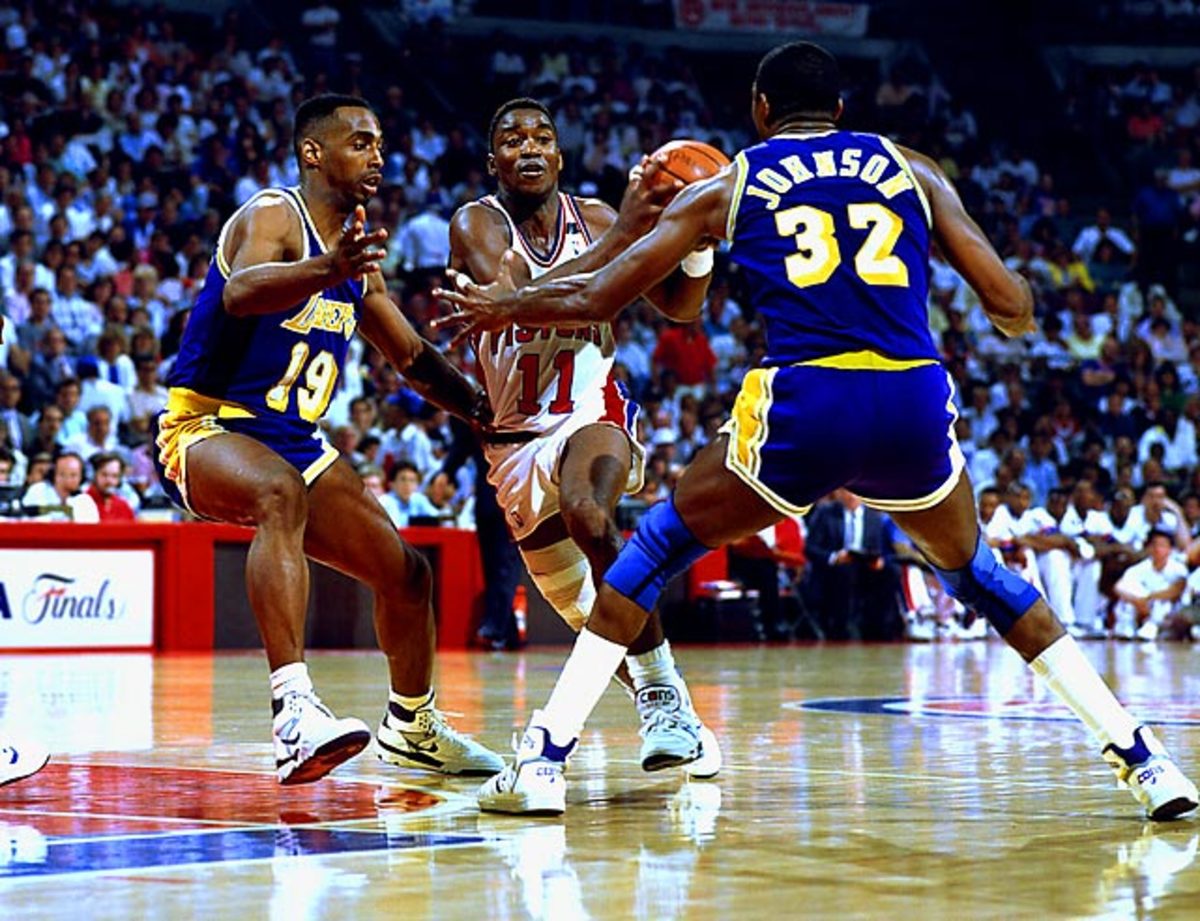
The first of back-to-back Bad Boys title teams featured a stout defense and a balanced offense anchored by the backcourt duo of Isiah Thomas and Joe Dumars. Detroit (63-19) was six games better than the rest of the league, and its 15-2 romp through the playoffs included a sweep of the banged-up Lakers in the Finals.
1990-91 Chicago Bulls
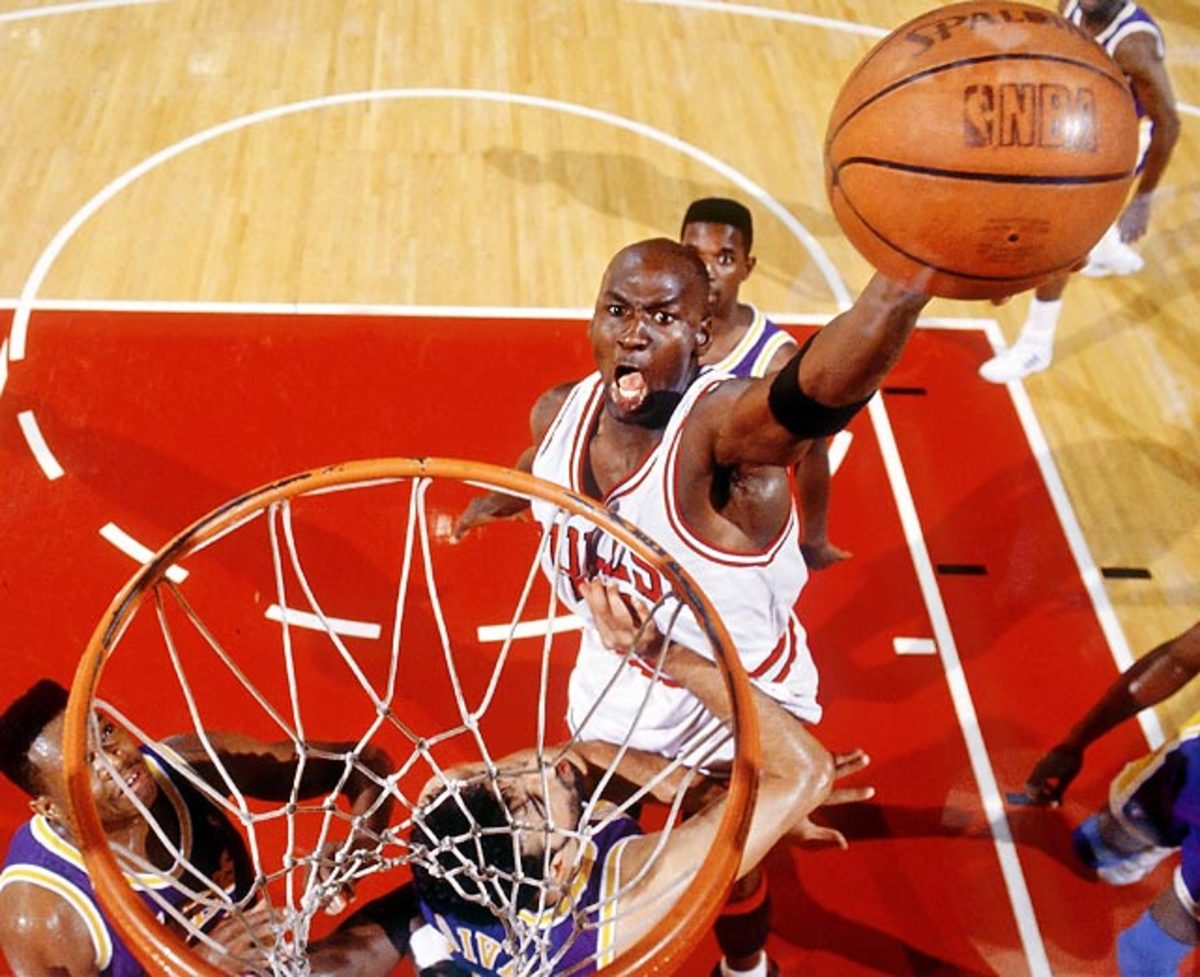
Four Bulls teams in the `90s won more regular-season games than this one (61-21), but the dynasty starter's postseason was tremendous. The Bulls went 15-2, sweeping the two-time defending champion Pistons in the Eastern Conference finals and dispatching the Lakers (who had won four titles in the `80s) in five games. Both of Chicago's playoff losses were by two points. Michael Jordan and Scottie Pippen combined to average 52.7 points, 15.3 rebounds and 14.2 assists in the playoffs.
2000-01 Los Angeles Lakers
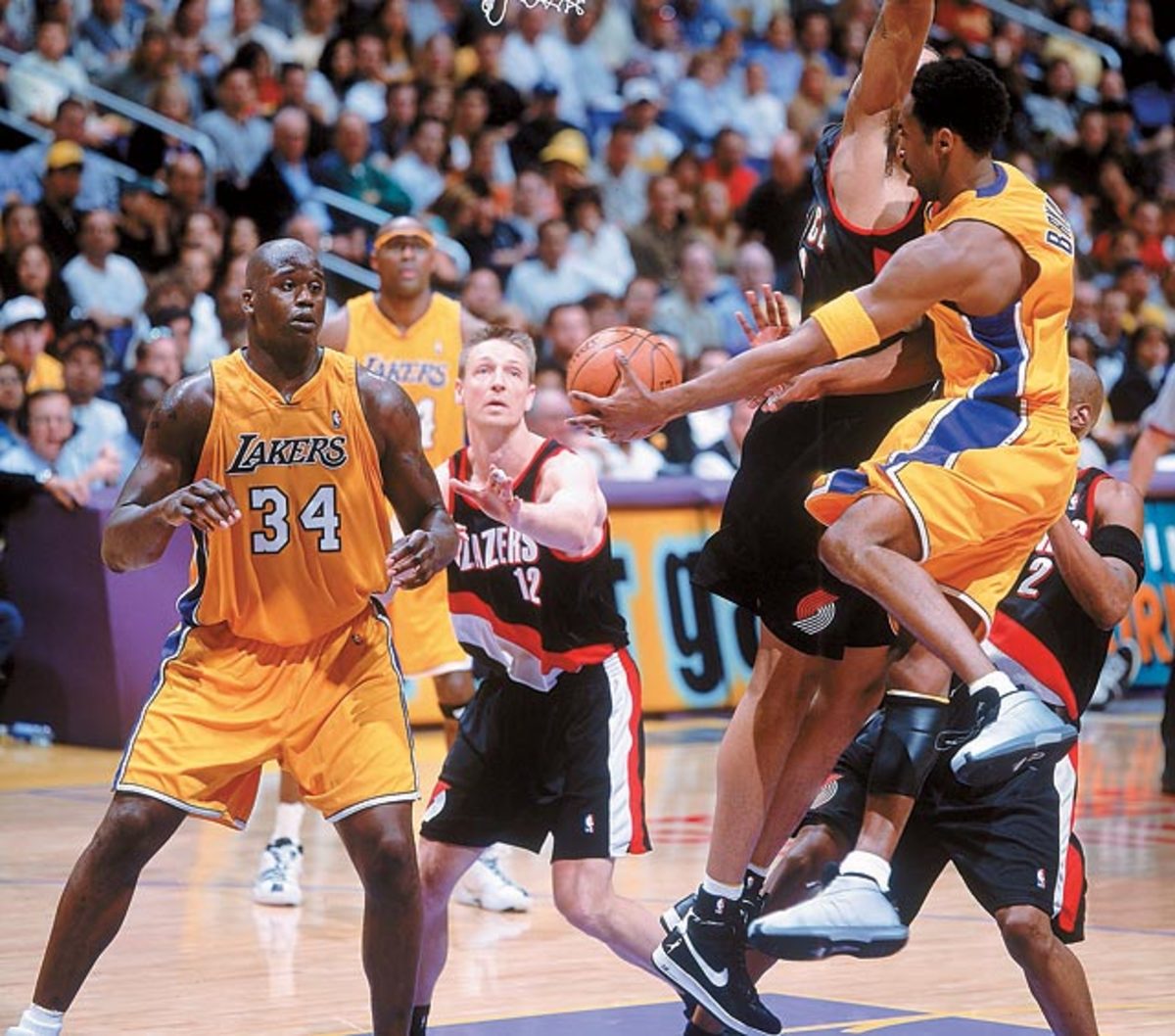
No, the second of L.A.'s three consecutive championship teams wasn't dominant in the regular season: The Lakers tied for second in the NBA with 56 victories, their average scoring margin was only plus-3.4 and they ranked 21st in defensive efficiency. But their playoff run was something special. Behind Shaquille O'Neal (30.4 ppg, 15.4 rpg) and Kobe Bryant (29.4 ppg, 7.3 rpg, 6.1 apg), the Lakers went 15-1 in the postseason with a plus-12.8 scoring margin. Their only loss was an overtime defeat to Philadelphia in Game 1 of the Finals. Including an 8-0 finish to the regular season, the Lakers won 23 of their final 24 games.
